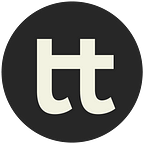Think tanks in times of political transformation
The national political transformation that began in earnest in 1990 impacted all organisations in South Africa. For the South African Institute of International Affairs (SAIIA) that had been established in 1934 as an independent, membership-based organisation, with the aim of furthering studies of international affairs, it meant introspection on the future role of the Institute, as international isolation disappeared and the world both at home and abroad was changing rapidly. Equally it was a significant opportunity to contribute to the shaping of South Africa’s foreign policy and reflection on the implications of the ‘new world order’ that had been heralded by George HW Bush. One concern at the time, expressed by SAIIA’s national chairman, was that as the East–West divide was ending, he feared the deepening of the North–South divide — an issue that has again been highlighted by the Covid-19 pandemic.
In the increasingly polarised domestic milieu of the 1970s and 1980s, SAIIA saw its role as focusing on research and conferences that tackled the critical issues facing South Africa at the time. In the late 1970s, in the aftermath of the 1976 Soweto uprising, the Institute began organising small weekend conferences that brought together South Africans of all colours and of widely differing political views to discuss critical issues among themselves and with participants from overseas. Those meetings led later to a series of weekend conferences for corporate members, where SAIIA’s facilitating role enabled contact across political and racial divides at a time when too little of that was happening.
Some of the topics addressed during that period included: ‘Education and training for development’, ‘The future of South West Africa’ and ‘South Africa in the world: The realities’. Furthermore, while the apartheid government had only limited relations with independent African states, SAIIA engaged in its activities with scholars from across Africa where possible. In the 1980s SAIIA introduced a series of big ‘international outlook’ conferences, which were intended to expose South Africans to important outside opinions and thought, so as to encourage thinking inside South Africa on what needed to change in the country.
Much of the research and related activity in the early 1990s focused on understanding South Africa’s new position in the world and stimulated dialogue on the future of South Africa’s foreign policy.
As South Africa moved towards the first democratic elections in 1994, a Transitional Executive Council (TEC) was established in November 1993 to govern South Africa until the elections. A number of sub-councils operated under the TEC (similar to ministries). SAIIA’s national director at the time, Professor John Barratt, was nominated to serve on the Sub-Council on Foreign Affairs. There he served together with, among others, the future deputy minister of foreign affairs, Aziz Pahad. While Barratt had been nominated by the Democratic Party, he himself was not a member, unlike the other members of the sub-council who had been nominated by their respective parties. He had been nominated as an expert on international affairs. By the time of the elections in April 1994, the sub-council had presented a set of proposals to the TEC for consideration aimed at helping the new government hit the ground running once it came to power.
However, from the early 1990s the Institute had to contend with significant funding challenges. Corporate membership, which had been the primary source of income for SAIIA during the apartheid years, began to decline due to cost-cutting and mergers. In some instances, corporations believed that since the country was now becoming a democracy, support for civil society organisations such as SAIIA was no longer necessary. While efforts were made to shore up domestic revenue in the ensuing decade, SAIIA’s income came increasingly from research grants from abroad, a situation that remains the case today. The challenge today is how to build up a stronger domestic revenue base in a very constrained local economy.
South Africa’s re-entry into the world after 1994 and its active engagement in international affairs from the start, allowed SAIIA to build on the sound independent reputation it had established during apartheid. It also enabled SAIIA to make new fruitful contacts in Africa and Asia where those had been curtailed under apartheid. With the new government’s focus on reconnecting with the rest of Africa and asserting its African identity, SAIIA’s mission became to understand and analyse South Africa’s and Africa’s relations with the world, a mission which continues to this day. While SAIIA is a South African institute, it considers itself part of a broader network of African think tanks that have grown since the 1990s, whose objectives are to contribute to a more informed and capacitated African engagement on the international stage.
Elizabeth Sidiropoulos
Chief Executive, South African Institute of International Affairs (SAIIA)
